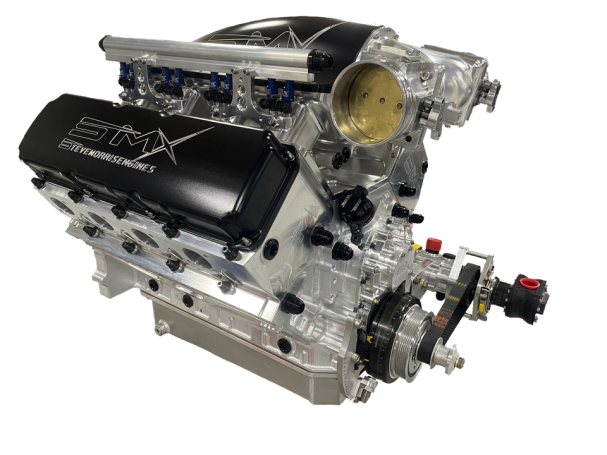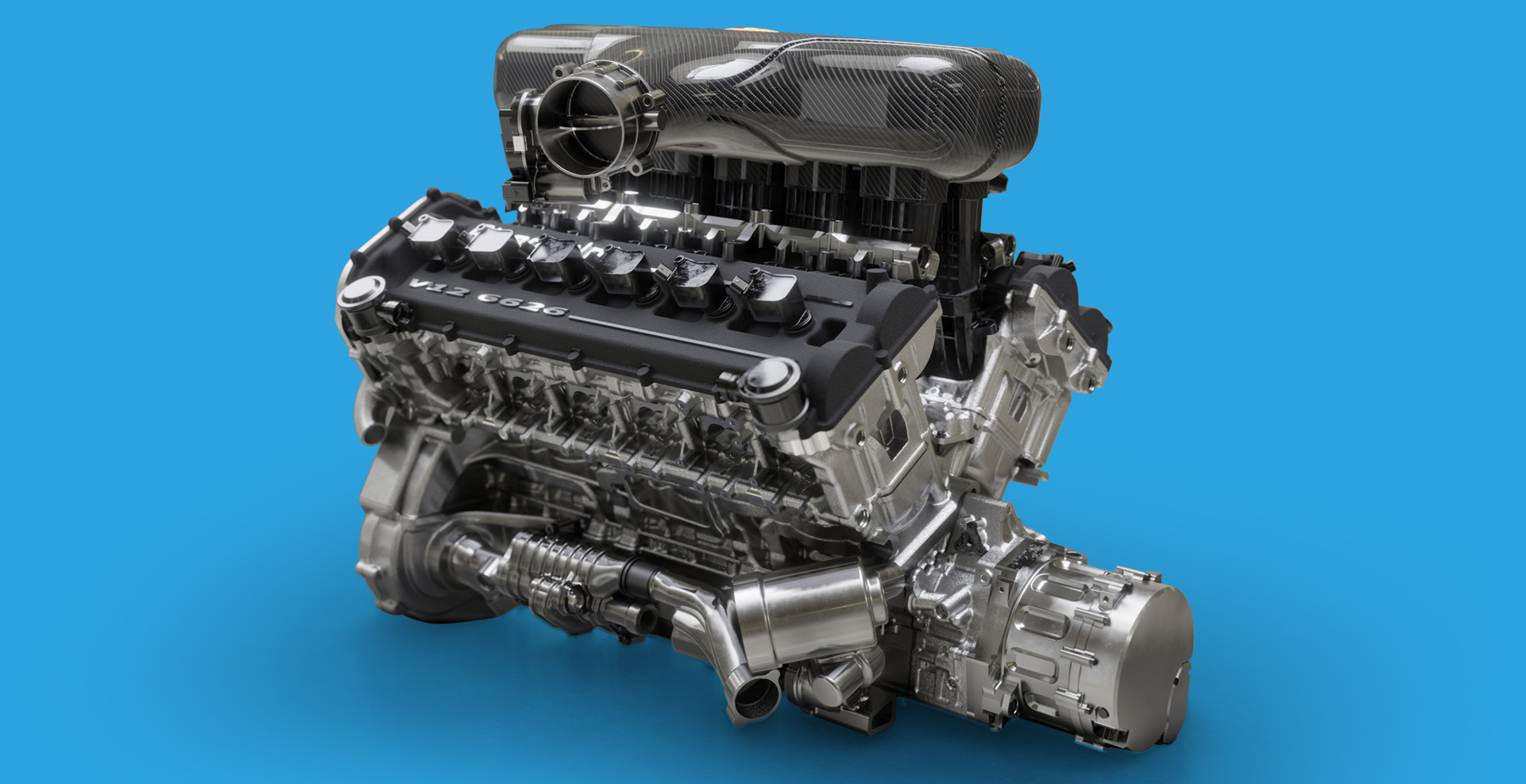Your Go-To Vehicle Parts Shop for Engines for Africa and More
Your Go-To Vehicle Parts Shop for Engines for Africa and More
Blog Article
The Influence of Innovative Engine Technologies on Energy Effectiveness and Environmental Sustainability
In the world of transport and industrial machinery, the constant mission for improved energy performance and minimized ecological effect has led to substantial improvements in engine technologies. From the progressive change towards hybrid and electrical systems to the assimilation of turbocharging for boosted performance, the landscape of engines is advancing quickly.
Evolution of Engine Technologies
The development of engine modern technologies over the years has been marked by consistent development and improvement in search of improved performance and performance. From the early days of internal combustion engines to the innovative hybrid and electric powertrains of today, the advancement of engine technologies has actually been driven by a relentless pursuit for boosted fuel performance and decreased exhausts.
One considerable landmark in this evolution was the advancement of turbocharging and straight injection systems, which significantly improved engine power output while improving fuel performance. These modern technologies enabled smaller sized, more lightweight engines that might deliver the performance of bigger ones without jeopardizing on efficiency.
Moreover, advancements in materials scientific research have brought about the widespread fostering of lightweight materials such as aluminum and carbon fiber in engine construction. This has not just lowered overall car weight however has likewise enhanced engine effectiveness by minimizing energy losses connected with inertia and friction.
Benefits of Electric and Crossbreed Solutions
With the expanding focus on sustainability and power effectiveness, what benefits do hybrid and electrical systems use in the realm of engine modern technologies? Additionally, electrical and hybrid systems are extra energy-efficient, transforming a higher percentage of stored power into propulsion compared to standard engines. Hybrid systems combine the benefits of electrical propulsion with the adaptability of a combustion engine, offering prolonged driving varieties and reducing range anxiety for consumers transitioning to electrical vehicles.
Turbocharging for Improved Performance
Turbocharging works by making use of a turbine to require more air right into the burning chamber, allowing for better fuel burning and enhanced power output without a significant increase in engine dimension. By taking full advantage of the performance of the combustion process, turbocharged engines can attain improved fuel economy and lowered emissions, contributing to ecological sustainability. The widespread adoption of turbocharged engines in both fuel and diesel cars shows their effectiveness in stabilizing efficiency, effectiveness, and environmental impact.
Using Alternate Gas
Using different gas provides an appealing opportunity for minimizing carbon exhausts and expanding the energy resources made use of in transport. As the globe strives to deal with environment change and decrease dependence on fossil fuels, why not look here alternate gas have actually gained considerable focus for their potential environmental and financial benefits.
Biofuels, such as ethanol and biodiesel, are stemmed from he has a good point sustainable sources like corn, sugarcane, and algae, offering a cleaner burning option to traditional gas and diesel. These fuels can be combined with existing petroleum fuels or used in dedicated engines, providing a pathway to reduced greenhouse gas discharges and enhance air high quality.
Moreover, hydrogen gas cells have actually become a promising innovation for zero-emission transportation. engines for africa. By converting hydrogen gas into electricity to power electric motors, fuel cell lorries create just water vapor as a byproduct, eliminating unsafe tailpipe exhausts entirely
In addition to reducing carbon exhausts, different fuels can also enhance energy safety by diversifying the fuel mix and reducing reliance on imported oil. Accepting different fuels in transport is a crucial action in the direction of attaining a more sustainable and eco-friendly future.

Ecological Benefits and Future Prospects
The environmental benefits of alternative fuels and their potential for long-lasting sustainability are crucial considerations in the change towards cleaner energy sources. Different gas, such as biofuels, hydrogen, and electrical energy, offer considerable environmental advantages contrasted to conventional fossil gas. These gas create lower levels of greenhouse gas discharges, reducing air contamination and mitigating environment change influences. In addition, alternative gas can assist expand power sources, improving energy safety and reducing dependence on limited sources.
The future potential customers for alternative gas in the transport industry are appealing. Developments in modern technology remain to boost the performance and affordability of alternate gas automobiles, making them extra accessible to consumers. Federal governments all over the world are additionally carrying out plans to incentivize the fostering of alternate gas, even more driving their growth. As r & d efforts expand, the possibility for even greener and more lasting gas choices increases, paving the means for a cleaner and much more eco-friendly transport industry. By embracing cutting-edge innovations and alternate fuels, the path continue reading this towards an extra sustainable future becomes increasingly achievable.

Verdict
Finally, ingenious engine technologies have played an important duty in enhancing power efficiency and promoting environmental sustainability. engines for africa. The advancement of engine modern technologies, fostering of electrical and hybrid systems, usage of turbocharging, and expedition of alternate gas have all contributed to enhancing and lowering discharges effectiveness. The ecological benefits of these improvements are clear, and there is excellent prospective for additional progress in the future. Engine technologies remain to be a vital area of emphasis for accomplishing a much more lasting future.
In the world of transportation and commercial machinery, the constant mission for enhanced energy performance and minimized ecological effect has led to significant developments in engine innovations. Turbocharging jobs by using a wind turbine to compel more air into the combustion chamber, permitting for far better gas burning and increased power result without a considerable boost in engine size. By taking full advantage of the effectiveness of the combustion process, turbocharged engines can attain improved fuel economy and reduced discharges, adding to environmental sustainability. Different gas, such as biofuels, hydrogen, and electrical energy, deal significant ecological advantages compared to standard fossil fuels. The advancement of engine innovations, adoption of electric and hybrid systems, use of turbocharging, and exploration of alternate gas have all added to boosting and reducing exhausts effectiveness.
Report this page